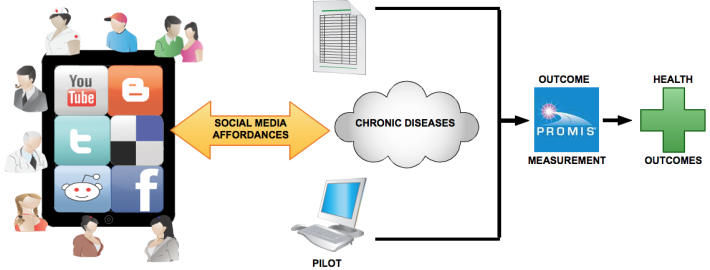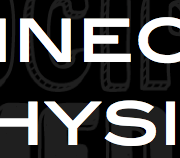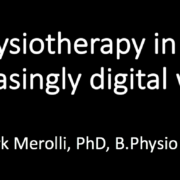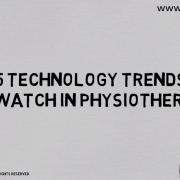Research View: Social Media Use in Chronic Pain Management
*The following piece forms the majority of the content of an article I wrote for the Australian Physiotherapy Association, August 2014
Reflecting on my PhD research into health outcomes and social media use, one of my primary motivations (or curiosities) to pursue this research was the increasing frequency of patients arriving at consults first having been on Google and/or social media to do research on their condition. The second came after working in London where I noticed that the online landscape had moved into health much more furiously than here in Australia.
Compared to a lot of social media research in health, the research angle I’ve taken is more clinically focussed. We examine chronic pain more closely as a subset of chronic disease. Specifically, I’m trying to unpack patient ‘health outcomes’ from web/social media use. After all, as a clinician it’s health outcomes that you’re trying to improve. The issue is and was that there’s a limited amount of evidence specifically and definitively examining health outcomes from social media use so in that sense, there were a lot more gaps than solid definitive findings to work with.
From a research perspective, social media appear to offer a variety of avenues for people living with pain to supplement traditional self-management. This process is generally more patient led rather than health professional. There still seems to be a propensity for a lot of online pain management to centre on older technologies like message boards and discussion forums. From a more current perspective, we tend to see initiatives leveraging existing social networks to create online support groups (i.e. Facebook, Patients Like Me, etc.) or use of purpose built pseudo social networks/websites. Other examples of social media include: blogs, wikis and video sharing sites. Regardless of mode of delivery, the aims are to provide informational resources for people living with pain, and to connect people affected by pain to support each other/share experiences.
We’ve attempted to approach social media from a relatively unique angle that may give researchers and clinicians more information to help make decisions about social media use from a more evidence-based perspective. For me, the motivation was that while research exists highlighting a variety of social media uses in chronic condition management, there’s a real paucity of investigations that get at the core of what social media therapeutically afford. Social media platforms will come and go but the inherent uses and behaviours remain relatively consistent. We’ve noted that underlying the health outcomes people self-managing chronic conditions report from using social media are a few key affordances: ability to control self-presentation, connection of individuals, exploration of information, the narrative/shared experiences effect, and ability to adapt use dependent on current needs. Greater focus on these areas may prove very useful in tailoring social media interventions.
The research landscape primarily highlights improvements to aspects of psychological, social and cognitive health. We conducted a literature review that also suggested these outcomes occur. I’m cautious in noting that this background work reported no adverse events but we respectfully stay watchful and note qualitative reports do discuss issues like privacy, reputability of information, etc. The original research we’ve conducted as part of my PhD continues to confirm these same above findings. Psychological health outcomes appear at the top of the list, in particular reports of improved ‘emotional burden’. Other equally notable areas include improved aspects of social health (i.e. enjoyment of life and participation in social activities). Finally, reports of improved ability to take in new information have also been noted.
Finally, understanding and using social media from a health outcomes perspective is much different to understanding it from a business or commercial sense. By and large, we’re (health professionals) pretty uninformed. We’re cautious and conservative when it comes to social media as a treatment/management tool, and we should be. This isn’t a reason to reject it completely though. The landscape is still foggy and more evidence is greatly needed. At this stage my recommendation to clinicians is not that they force themselves to jump head on into social media. They shouldn’t be expected to and it may not be appropriate. The reality we face (while sounding rather clichéd) is that Internet, technology, social media, mobile, etc are here and only going to keep ramping up. People are online for their health. It makes sense that we be there as well (whether actively or passively) so we can be better informed and better able to guide, manage and assist our patients. A good starting point is education. Clinicians would be well served to at least make the effort to understand what social media are and why health consumers use them.
Mark Merolli, Founder & Director illorem












Leave a Reply
Want to join the discussion?Feel free to contribute!